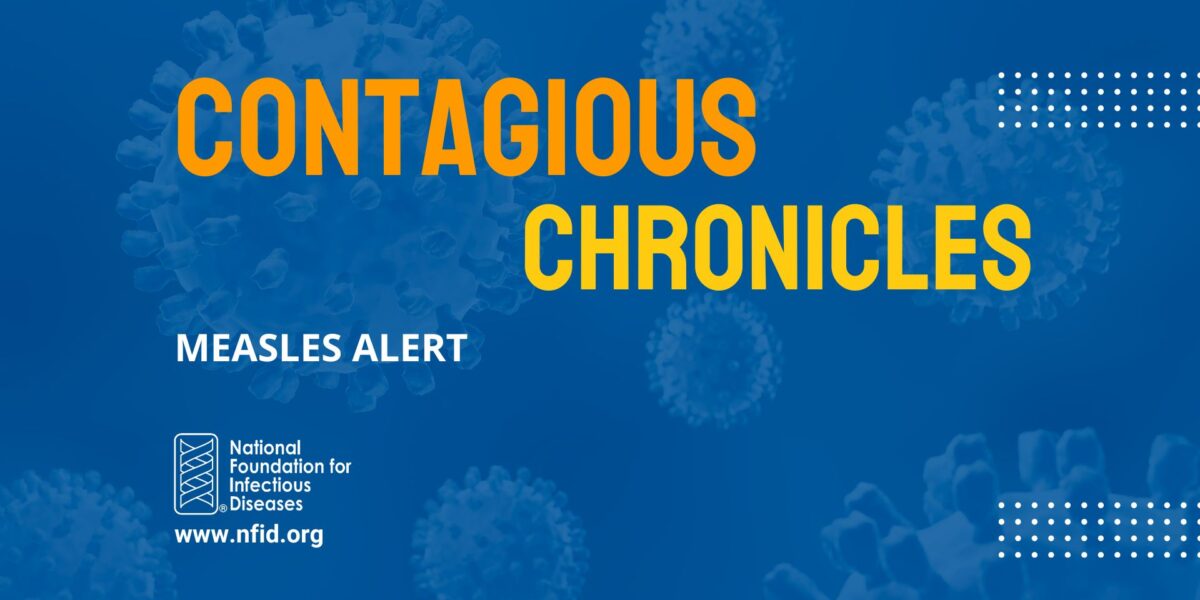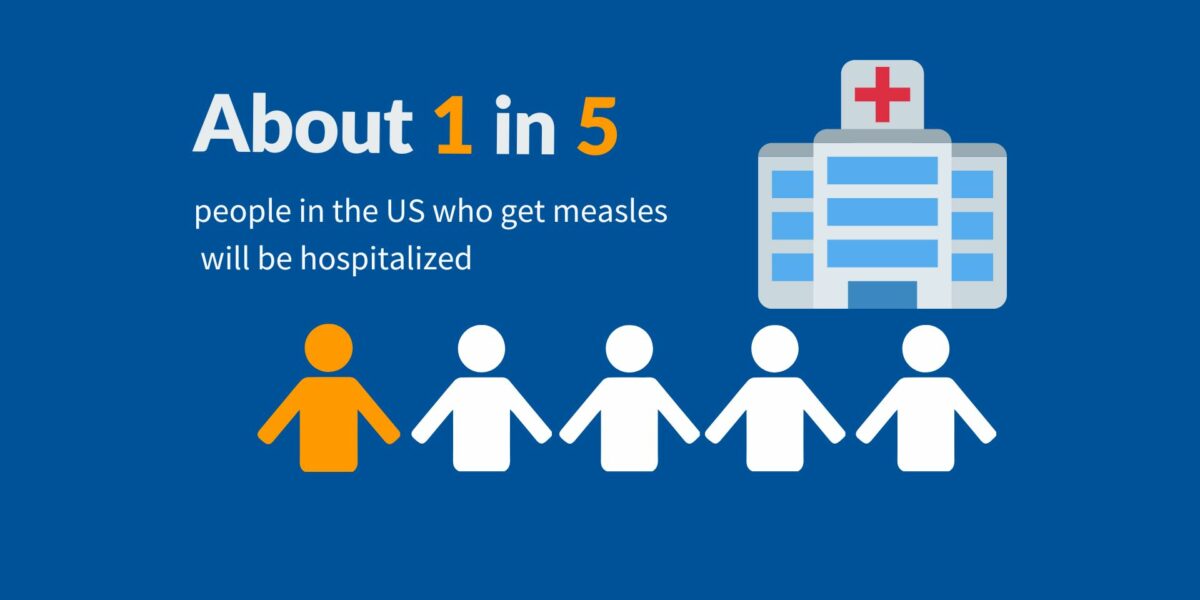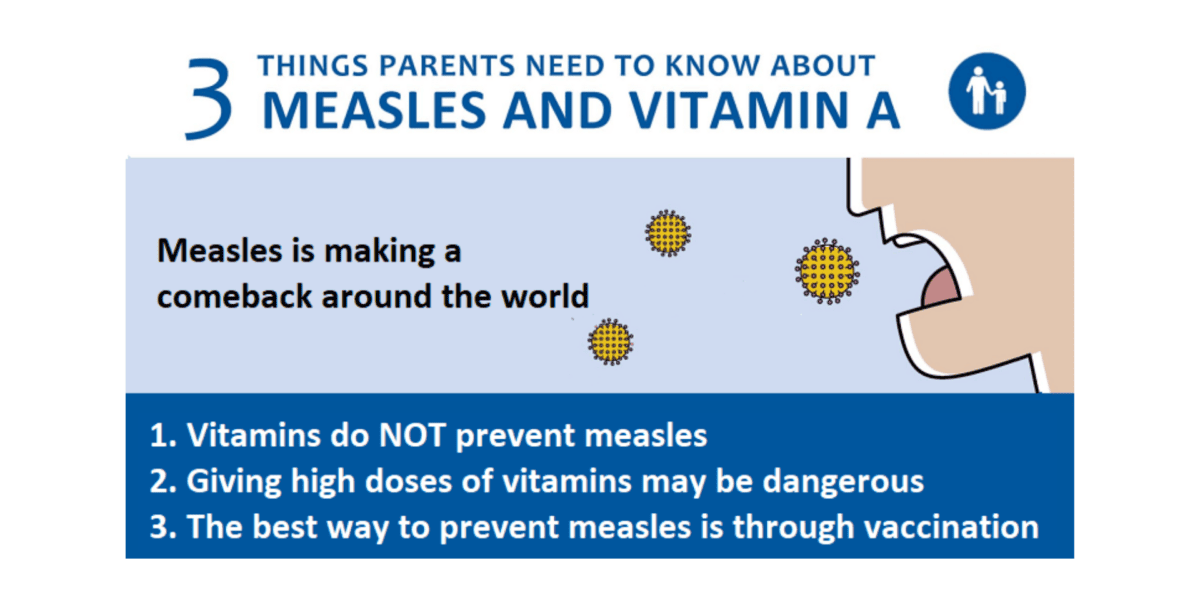
What should parents know about measles?
Measles is more than its well-known rash. It spreads within a family and community quickly and can be spread both before and after the rash appears. The effects of measles can last for weeks, months, or years. Vaccination is the best way to prevent measles.
Is measles a serious disease?
Yes. Even in a mild case, measles is a miserable disease with high fever, sensitivity to light (photophobia), dehydration, cough, pneumonia (1 in 20), and rash. Measles can result in seizures, deafness, blindness, permanent lung damage, and immune amnesia (wiping out of prior immune protection). Measles can weaken the immune system and the central nervous system, leading to serious disease and even death years after measles infection. Estimates show that 1-3 out of 1,000 children with measles will die.
How contagious is measles?
Measles is the most contagious virus known to humans. Each infected individual can potentially infect another 18 people, and they can each go on to infect another 18. This is why outbreaks can quickly go from 2 cases to 124 in just 1 month. 90% of unvaccinated people who are exposed will get measles.
Who is most at risk for measles?
Unvaccinated people, those too young to be vaccinated (infants younger than 12 months), immunosuppressed individuals, and pregnant women are most at risk for measles.
What are the risks for infants who are routinely exposed to unvaccinated children?
Infants who are too young to be vaccinated are vulnerable if exposed to measles. If the infant’s mother was vaccinated against measles before becoming pregnant, measles antibodies that crossed the placenta help protect the infant for the first 6 months of life. However, these antibodies wane relatively quickly, so infants age 6-11 months have little protection. If you live in a state that is experiencing a measles outbreak or plan to travel internationally, check with your local health department or talk with your healthcare professional about how to protect your infant against measles.
Who should be vaccinated against measles?
The measles, mumps, rubella (MMR) vaccine is recommended for infants. The first dose is given to infants age 12-15 months, followed by a second dose between age 4-6 years.
Who should not be vaccinated against measles?
The only people who should not get measles vaccine are those who are immunocompromised or pregnant, or those who have had an allergic reaction to previous vaccine (rare, ~1 in a million).
Can people who are vaccinated still get measles?
The vaccine is 97% effective after 2 doses, but that leaves 3% who may not have made antibodies to the vaccine who can get measles.
Do adults who have already been vaccinated need a booster?
Most vaccinated adults are immune to measles and do not need further vaccines. Those born before 1957 likely had measles disease and developed life-long immunity and do not need MMR vaccines. Those vaccinated between 1963-1968 may have received a measles vaccine that was found to have lower effectiveness. Those who had 2 doses of measles vaccine are not considered to be at risk.
The best defense against measles is vaccination, and if you are not sure of your immunity or vaccination status, it is safe to get a measles vaccine.
What should you do if you come in contact with measles?
Contact your local health department who will assist you based on the nature of the exposure and your vaccine history.
How can measles be treated?
There is currently no antiviral medication to treat measles. The goal of medical care is to relieve symptoms and address complications such as bacterial infections. Children who are admitted to the hospital with severe cases of measles often need IV fluids, supportive care (which may include vitamin A), and potentially ventilator support to breathe. It is important to note that vitamin A should only be administered by a licensed healthcare professional because of the potential risks of high doses of vitamin A.
Why are vaccines so important to prevent measles?
MMR vaccine is highly effective in preventing measles. It works. It is safe. It is cost effective. It prevents expensive, often devastating outbreaks. Vaccination helps protect those who are vaccinated, and high vaccination rates also protect those unable to be vaccinated including immunocompromised patients and infants too young to be vaccinated.
The most important thing parents and others can do to help protect their families and communities from measles is to make sure that everyone who can be vaccinated is vaccinated against measles.
Updated March 2025
Source: Centers for Disease Control and Prevention
Related Resources

Measles Alert
In this episode, NFID experts offer insights on the recent increase in cases of measles, a highly contagious and potentially serious disease that is now making a comeback due to low vaccination rates in some communities …

Measles Awareness Resources and Sample Social Media Posts
Resources and sample social media posts to increase awareness about the importance of preventing measles

3 Things Parents Need to Know about Measles and Vitamin A
Download and share this infographic to raise awareness about measles prevention and management
